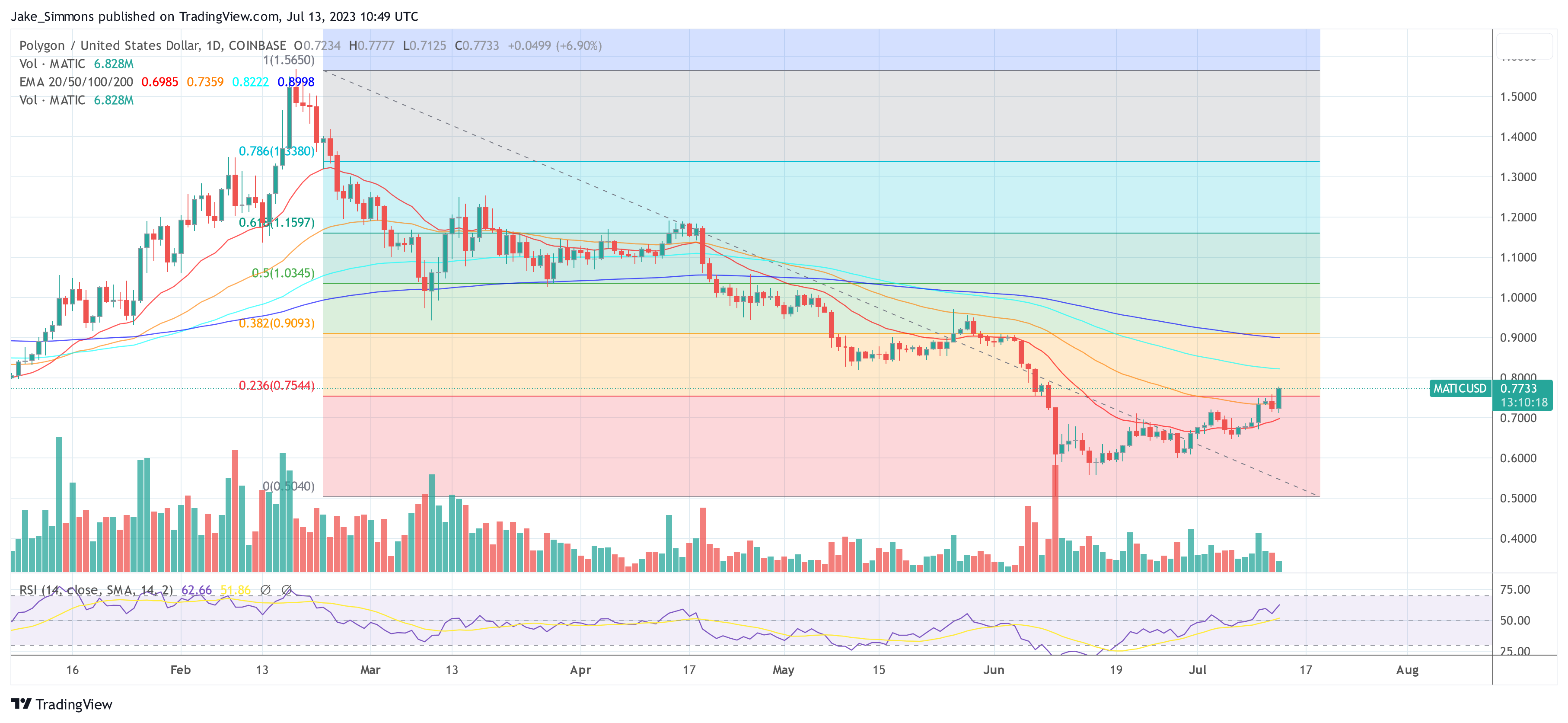Polygon Labs Proposes To Replace MATIC With POL Token
In a recent development, Polygon Labs has unveiled a proposal to upgrade its native token, MATIC, to a new token called POL. The announcement, made through a blog post, introduces POL as a next-generation protocol token that aims to become a major driving force for the coordination and growth of the ecosystem, positioning it as the Value Layer of the Internet.
Polygon: MATIC Becomes POL
The proposal, outlined in a comprehensive white paper by a group of Polygon founders and researchers, introduces POL as a third-generation native asset, characterized as a hyperproductive token. According to them, POL enhances the functionality of native tokens by allowing validators to validate multiple chains and enabling each chain to offer multiple roles and corresponding rewards to validators.
1/ Today, the next technical proposal of Polygon 2.0 is unveiled:
POL, the upgraded token of the Polygon protocol! 💫
POL is the next generation native token, designed to secure, align and grow the Polygon ecosystem.
Watch the video to get an idea how cool it is, then 🧵 pic.twitter.com/Gn7KcHpWEY
— Polygon (Labs) (@0xPolygonLabs) July 13, 2023
The proposed upgrade brings several potential benefits to the ecosystem. One of the key advantages is improved ecosystem security, achieved through the participation of a highly decentralized pool of Proof-of-Stake (PoS) validators. This approach aims to enhance security, resilience, and neutrality across all POL chains, as validators are incentivized to secure as many chains as possible.
Scalability has long been a challenge for blockchain networks, and the POL token seeks to address this issue. The upgraded token is designed to support the exponential growth of the Polygon ecosystem while maintaining a high level of security. This scalability feature is expected to facilitate mainstream adoption and accommodate thousands of chains.
Furthermore, the proposed upgrade aims to provide a frictionless experience for users and developers. Unlike some blockchain protocols that introduce complexities by requiring native token holdings, staking, or consumption, POL has been designed to eliminate such frictions, potentially enhancing user and developer experience within the ecosystem.
The team’s commitment to community ownership and governance is reflected in the proposal. The introduction of POL would enable token holders to participate in governance frameworks, emphasizing decentralization and ensuring a community-driven decision-making process.
The migration process from MATIC to POL is intended to be seamless, with token holders required to send MATIC to an upgraded smart contract, which will automatically convert it into the equivalent amount of POL tokens. Polygon Labs has assured token holders that they will have ample time, potentially four years or more, to complete the migration.
Remarkably, Polygon Labs has also emphasized that this proposal has been in development for nearly a year and is not a direct response to recent regulatory events. It is a carefully considered plan to enhance the ecosystem and adapt to the evolving landscape of blockchain technology.
More details are expected to follow soon, when the team will share more details in a yet-to-be-released Polygon Improvement Proposal (PIP).
At press time, the token price reacted strongly to the news and recorded a rise of more than 5% in the last 24 hours. In a bullish move, MATIC broke the 23.6% Fibonacci retracement level on the 1-day chart and traded at $0.7733.

Featured image from Admiral Markets, chart from TradingView.com
